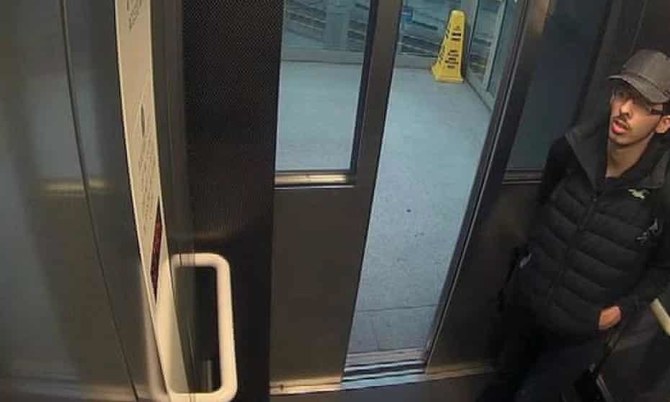LONDON: The British security service has refused to reveal details of two pieces of intelligence it received and dismissed in the months before the Manchester arena bombing, an inquiry has heard.
MI5 did not explain the intelligence, but said it was assessed to be “non-terrorist criminality.”
An inquiry into the events surrounding the 2017 Manchester Arena bombing, which killed 22, is ongoing — and many parts of it, for the first time since the Sept. 11 attacks, have been carried out behind closed doors, due to the sensitive nature of what is being discussed.
A senior MI5 officer, known as Witness J, has been answering questions for two days, alongside four colleagues.
One officer admitted that, in retrospect, the intelligence received was “highly relevant to the planned attack” and could have been understood at the time to indicate “activity of pressing national security concern.”
The 2017 attack saw Islamist terrorist Salman Abedi detonate a suicide vest in the Manchester Arena at the end of a pop concert. He was assisted by his brother, Hashem Abedi, who is now serving more than two decades behind bars for his role in the deadly attack, the victims of which included many children.
In his closing statements to the inquiry, Pete Weatherby, advocating on behalf of the victims’ families, questioned whether MI5 had approached the inquiry in the right way.
He cited one witness, Witness Z, who told the inquiry it would be “hugely damaging” for MI5 and police if the inquiry had “the unintended consequence of sapping the confidence of those at the investigative and operational front line” to make decisions.
Weatherby said: “A healthy organization welcomes scrutiny — only unhealthy ones seek to avoid it.
“MI5 is a public authority and as such it is accountable to the public. The idea that the scrutiny or criticisms of a public inquiry might in some way adversely affect national security is not just plain wrong, it is corrosive in that it undermines confidence.
“Independent scrutiny and criticism is a necessary precursor to making things better for the future.”
He added: “What is hugely damaging to any public inquiry is the belief that scrutiny and criticism is somehow harmful.”
He also warned: “Failure which is not fully addressed will recur, and more lives will be lost.”
Weatherby also suggested that the service had lost sight of the plot because it was focused on Syria.
“Were the security services too fixated on Syria, and missed the risks from elsewhere? Were they too fixed on actual positive evidence of attack preparation, rather than seeing where the attack might come from?
He said: “The families I represent would really like to know what exactly did Salman Abedi have to do to prompt a meaningful response from the security services?
Weatherby pointed out that there should have been “real alarm” over the radicalization of Salman Abedi after his links with the Daesh-affiliated Libyan group Katiba Al-Bittar Al-Libi emerged.
“There was persistent information coming to them about Salman Abedi. He did not emerge from the shadows,” Weatherby said, asking: “We know from other inquiries and inquests that sometimes, sadly, there is nothing that can be done to stop individual outrages and attacks. But for the reasons we have outlined, was this one of them?”




























